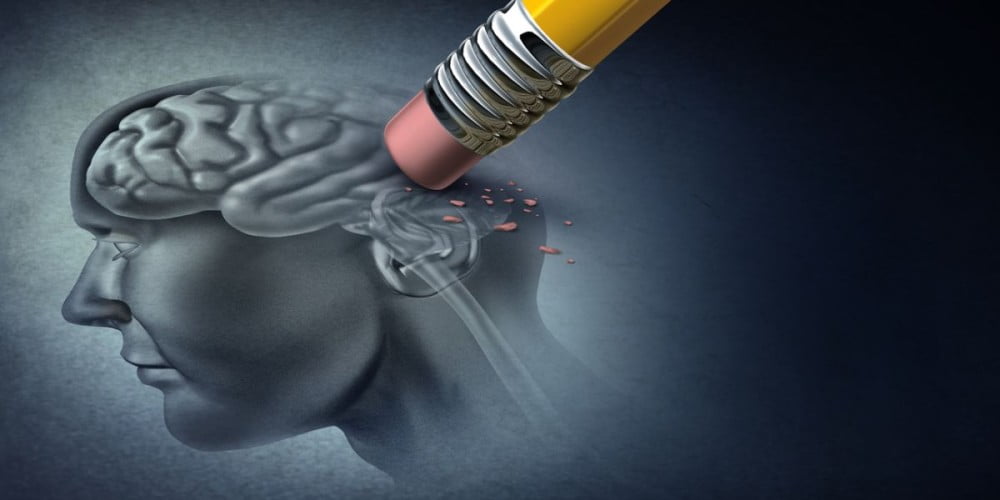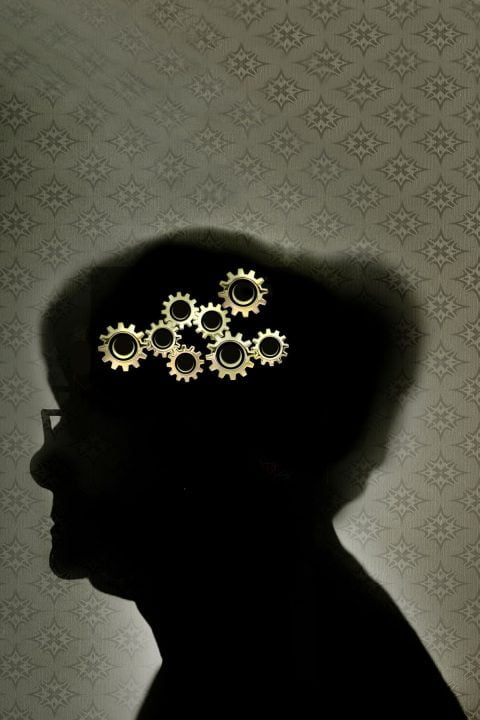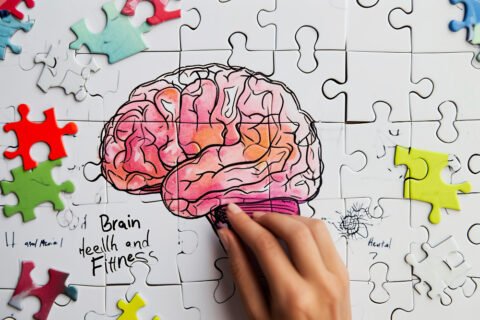Hello, reader! Understanding the early signs of Alzheimer’s and dementia is vital. These conditions can affect anyone, and early detection can make a significant difference in managing them effectively. In this article, we’ll explore the early warning signs, common symptoms, and important tests for Alzheimer’s and Dementia. We’ll also provide tips on managing and preventing these conditions.
What Are the 10 Early Warning Signs of Dementia?
Recognising the early warning signs of dementia can help in seeking timely medical advice. Here are ten signs to watch out for:
- Memory loss: Forgetting recently learned information is a common early sign.
- Difficulty planning or solving problems: Struggling to follow a plan or work with numbers.
- Challenges in completing familiar tasks: Trouble with everyday tasks like driving to a familiar place.
- Confusion with time or place: Losing track of dates, seasons, and the passage of time.
- Trouble understanding visual images and spatial relationships: Difficulty reading, judging distance, or determining colour contrast.
- New problems with words in speaking or writing: Struggling to follow or join a conversation.
- Misplacing things and losing the ability to retrace steps: Placing items in unusual places and being unable to find them.
- Decreased or poor judgement: Poor decision-making in financial matters or personal grooming.
- Withdrawal from work or social activities: Avoiding hobbies, social events, or work projects.
- Changes in mood and personality: Becoming confused, suspicious, depressed, fearful, or anxious.
These signs can vary from person to person, but if you notice any of these symptoms in yourself or a loved one, it’s important to seek medical advice.

What Are 7 Common Indicators or Symptoms of Dementia?
In addition to the early warning signs, there are several common indicators of dementia:
- Memory impairment: Significant memory loss affecting daily life.
- Difficulty communicating: Trouble finding the right words or understanding conversations.
- Disorientation: Getting lost in familiar places or not knowing the time or date.
- Poor coordination and motor function: Trouble with balance and coordination.
- Personality changes: Becoming easily upset, confused, or anxious.
- Apathy and withdrawal: Loss of interest in activities once enjoyed.
- Difficulty handling complex tasks: Struggling with activities that require planning and organisation.
Understanding these common symptoms can help in recognising dementia and seeking appropriate care.
What Are the Main 7 Symptoms of Alzheimer’s Disease?
Alzheimer’s disease has specific symptoms that differentiate it from other forms of dementia:
- Memory loss: Especially recent events and information.
- Difficulty performing familiar tasks: Challenges in completing everyday activities.
- Problems with language: Struggling to find the right words.
- Disorientation: Confusion about time and place.
- Decreased judgement: Poor decision-making abilities.
- Misplacing items: Putting things in unusual places and being unable to find them.
- Changes in mood and behaviour: Uncharacteristic mood swings and behavioural changes.
Comparing these symptoms with general dementia signs can help in distinguishing Alzheimer’s disease.
What Is a Common Symptom of Early Stage Alzheimer’s Type Dementia?
One prevalent early symptom of Alzheimer’s type dementia is short-term memory loss. Individuals may repeatedly ask the same questions or forget recent conversations, even though they can recall events from the distant past.
What Is the 5 Word Test?
The 5 word test is a simple memory test used for early detection of Alzheimer’s. Here’s how it works:
- The examiner says five unrelated words.
- The patient repeats the words immediately.
- After a few minutes, the patient is asked to recall the words.
This test helps in identifying memory issues that could indicate Alzheimer’s.
What Is the Number One Trigger for Dementia Behaviour?
Stress is the leading trigger for dementia-related behaviours. It can worsen symptoms and lead to increased confusion and agitation. Managing stress through relaxation techniques and a supportive environment can help mitigate its impact.
What Are the Three Golden Rules of Dementia?
Caring for someone with dementia can be challenging. Here are the three golden rules:
- Patience: Understand that tasks may take longer and be more challenging.
- Understanding: Recognise that behaviour changes are part of the disease.
- Support: Provide emotional and practical support to improve their quality of life.
These principles can make a significant difference in caregiving.
What Are the 4 P’s of Dementia?
The 4 P’s are essential in dementia care:
- Planning: Prepare for future needs and make necessary arrangements.
- Predicting: Anticipate potential challenges and changes in behaviour.
- Preventing: Take steps to reduce risks, such as falls or health issues.
- Protecting: Ensure the safety and well-being of the person with dementia.
These strategies help in providing comprehensive care.
What Is the Biggest Predictor of Dementia?
Age is the most significant predictor of dementia. The risk increases significantly after the age of 65. However, adopting a healthy lifestyle and engaging in mental and physical activities can help reduce the risk.
What Are Super Early Signs of Alzheimer’s?
Super early signs of Alzheimer’s include:
- Subtle memory loss: Forgetting recent conversations or events.
- Difficulty concentrating: Trouble focusing on tasks.
- Mild confusion: Getting confused about familiar places or people.
- Mood changes: Uncharacteristic mood swings or depression.
Early detection can lead to better management and treatment options.
What Is a Quick Test for Dementia?
A simple, quick test for detecting dementia is the Mini-Mental State Examination (MMSE). It includes tasks like:
- Remembering a short list of words.
- Performing basic arithmetic.
- Drawing a simple figure.
This test can be done at home or by a healthcare professional.

How Can I Test Myself for Early Dementia?
For self-assessment, you can:
- Monitor memory: Keep track of forgetfulness or repeating questions.
- Note changes in daily tasks: Observe any difficulties in performing routine activities.
- Track mood and behaviour: Watch for any significant mood swings or behavioural changes.
If you notice persistent issues, seek a professional evaluation.
What Is Stage 1 Dementia?
Stage 1 dementia, or mild cognitive impairment, involves:
- Slight memory loss: Minor forgetfulness.
- Mild confusion: Occasional confusion about time or place.
- Changes in thinking abilities: Slight difficulties in planning or solving problems.
At this stage, symptoms are not severe enough to affect daily life significantly.
What Is One of the First Signs of Cognitive Decline?
Difficulty finding words: Struggling to recall the right words during conversations is a common early sign of cognitive decline.
What Is Typically the Most Obvious Early Symptom of Dementia?
Memory loss is often the most noticeable early symptom. Forgetting recently learned information or important dates and events is a key indicator.
What Three Words Are Mispronounced Before Dementia?
Language and speech issues can indicate early dementia. Commonly mispronounced words include:
- Specific: Pronounced as “pacific”.
- Ask: Pronounced as “aks”.
- Library: Pronounced as “library”.
These mispronunciations can be early signs of cognitive decline.
What Morning Habits Increase Dementia?
Morning habits that may contribute to dementia risk include:
- Skipping breakfast: Leading to low blood sugar levels.
- Sedentary lifestyle: Lack of physical activity in the morning.
- Poor sleep quality: Not getting enough restful sleep.
Healthier alternatives like a balanced breakfast, morning exercise, and good sleep hygiene can reduce these risks.
What Two Personality Traits Are Linked to Dementia?
Research suggests that certain personality traits are linked to a higher risk of dementia:
- Neuroticism: Tendency towards anxiety, depression, and mood swings.
- Introversion: Preference for solitary activities over social interactions.
Maintaining mental well-being and social connections can help mitigate these risks.
What Is the Number One Thing to Prevent Dementia?
Regular exercise: Physical activity is the most effective preventive measure. It improves blood flow to the brain, reduces inflammation, and promotes overall brain health.
What Speeds Up Dementia?
Factors that can accelerate the progression of dementia include:
- Chronic stress: Leading to increased inflammation and cognitive decline.
- Poor diet: Lack of essential nutrients for brain health.
- Social isolation: Reduced mental stimulation and emotional support.
Implementing stress management techniques, a healthy diet, and maintaining social connections can help slow down the progression.
In conclusion, understanding the early signs and symptoms of Alzheimer’s and dementia is essential for early detection and management. By staying informed and proactive, you can help yourself or a loved one navigate these challenges more effectively. Remember, seeking professional advice and support is crucial in managing these conditions. Take care!
Also read: Best vitamins for brain health
Frequently Asked Questions
Dementia is a general term for a decline in mental ability severe enough to interfere with daily life. Alzheimer’s disease is the most common cause of dementia and involves specific changes in the brain.
No, dementia cannot turn into Alzheimer’s. However, Alzheimer’s disease is one type of dementia that can worsen over time.
Early signs of Alzheimer’s include memory loss, difficulty completing tasks, confusion with time or place, trouble understanding visual images, and problems with speaking or writing.
Alzheimer’s is diagnosed through a combination of medical history, cognitive tests, neurological exams, and brain imaging. Specific biomarkers are often looked for in Alzheimer’s, unlike other dementia types.
Yes, it’s possible to have mixed dementia, combining Alzheimer’s with another type.
While there’s no cure, treatments can manage symptoms. Medications, lifestyle changes, and supportive therapies are available.
Early onset Alzheimer’s occurs before age 65 and progresses faster. Symptoms are similar to late-onset but more severe.
Yes, neuropsychological tests, brain imaging, blood tests, and spinal fluid analysis can help.
Regular exercise, healthy diet, mental stimulation, social engagement, and managing heart health can reduce the risk.
Lewy body dementia has more visual hallucinations, fluctuating thinking, and movement problems (like Parkinson’s). Alzheimer’s is more focused on memory loss, confusion, and language difficulties.




